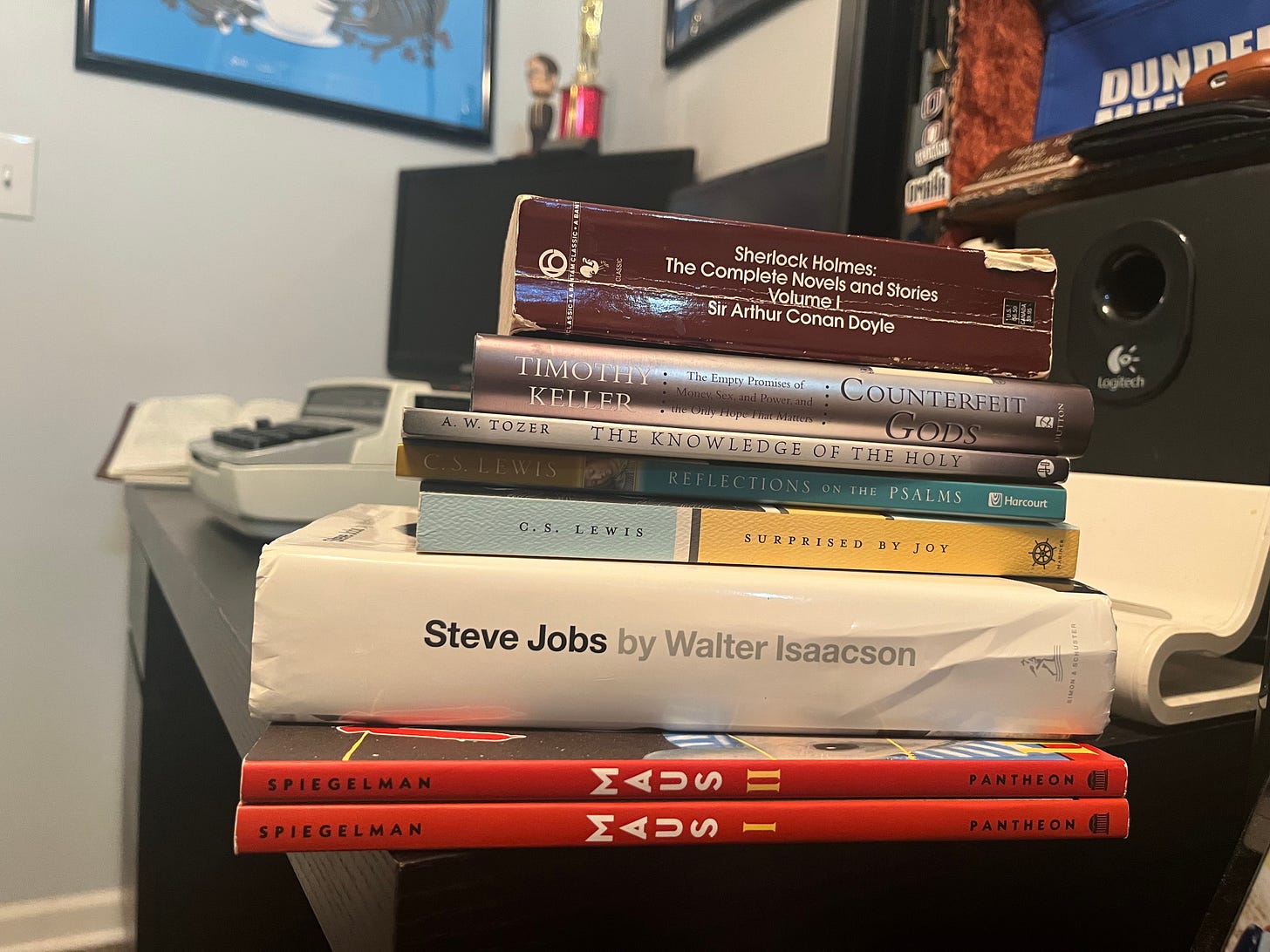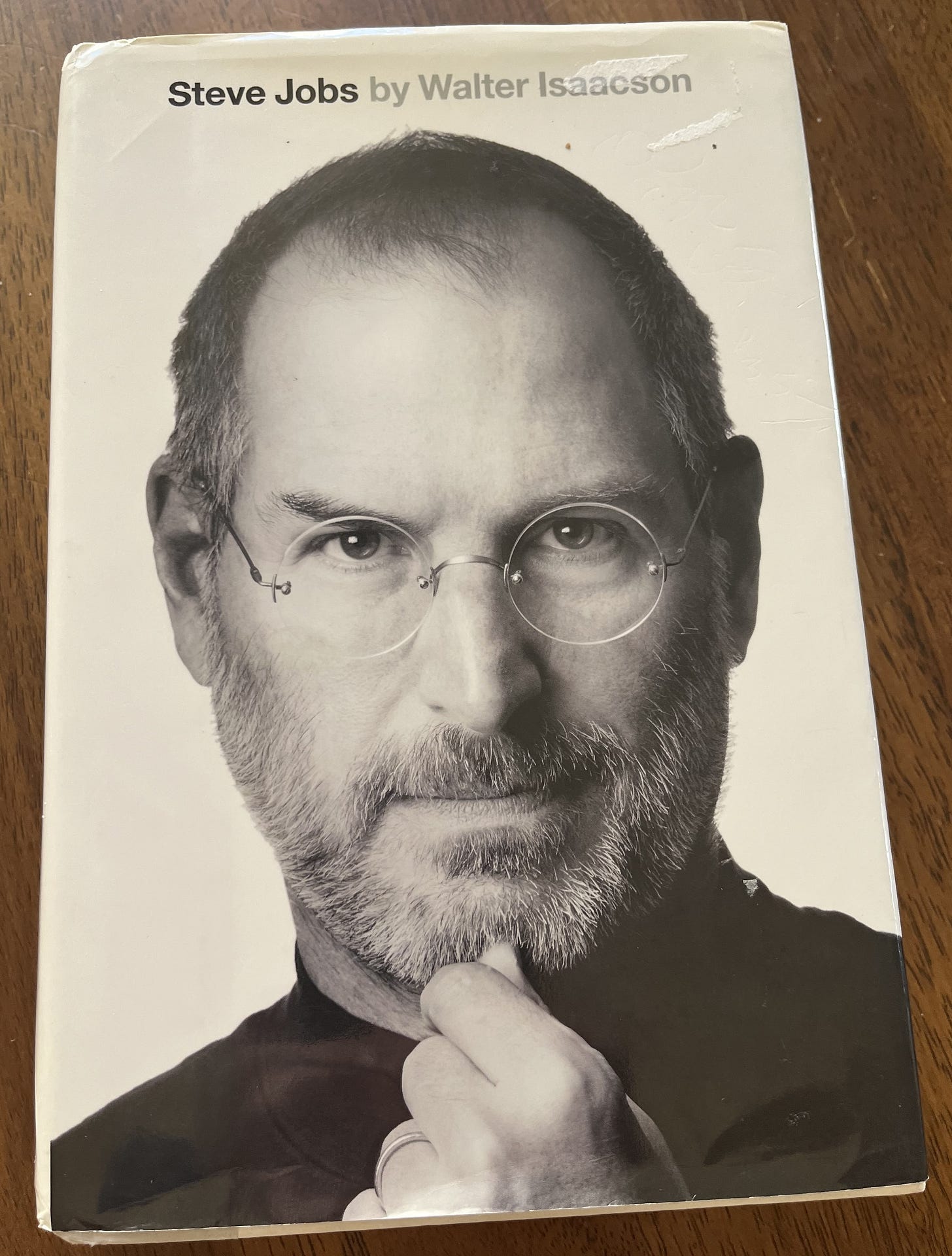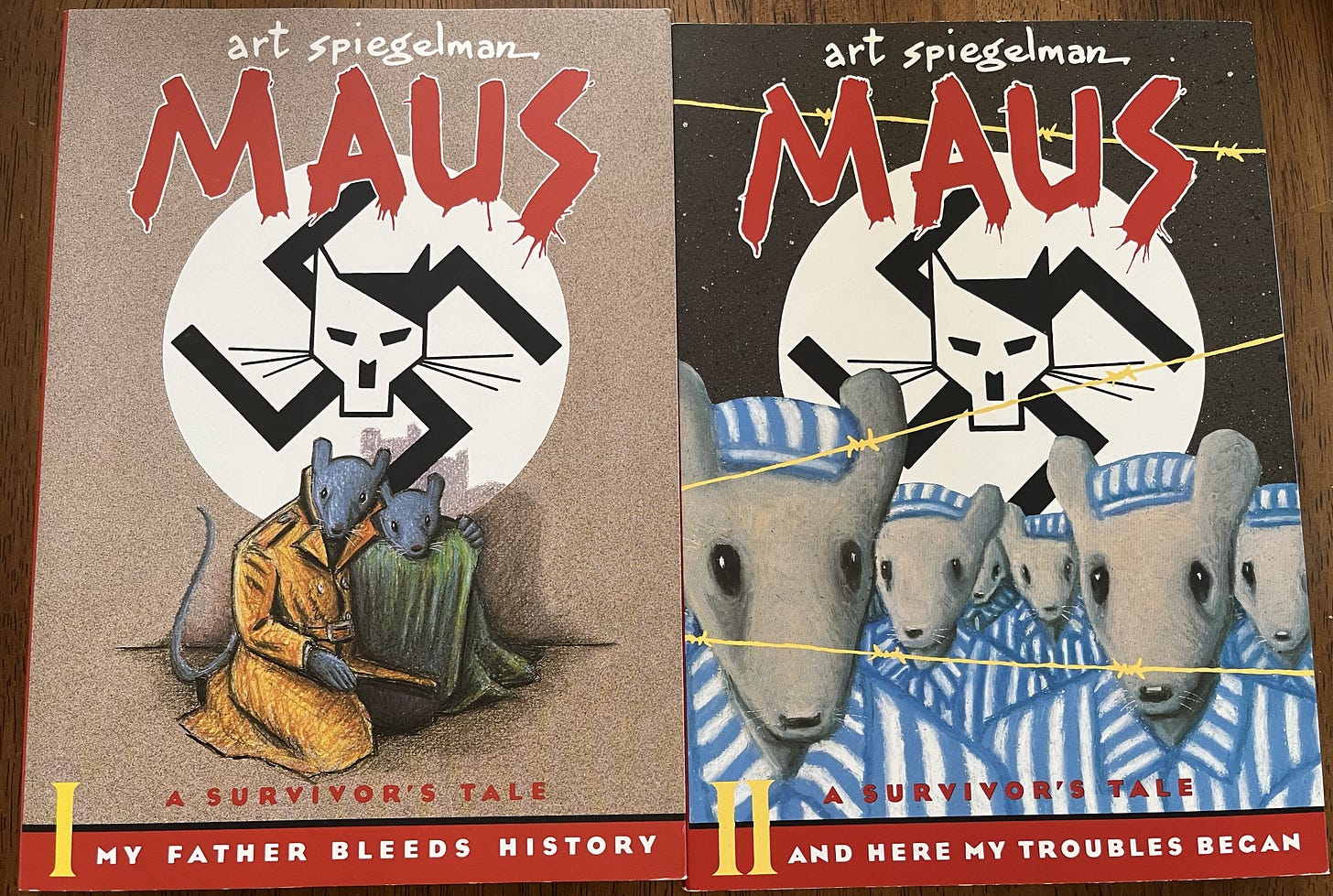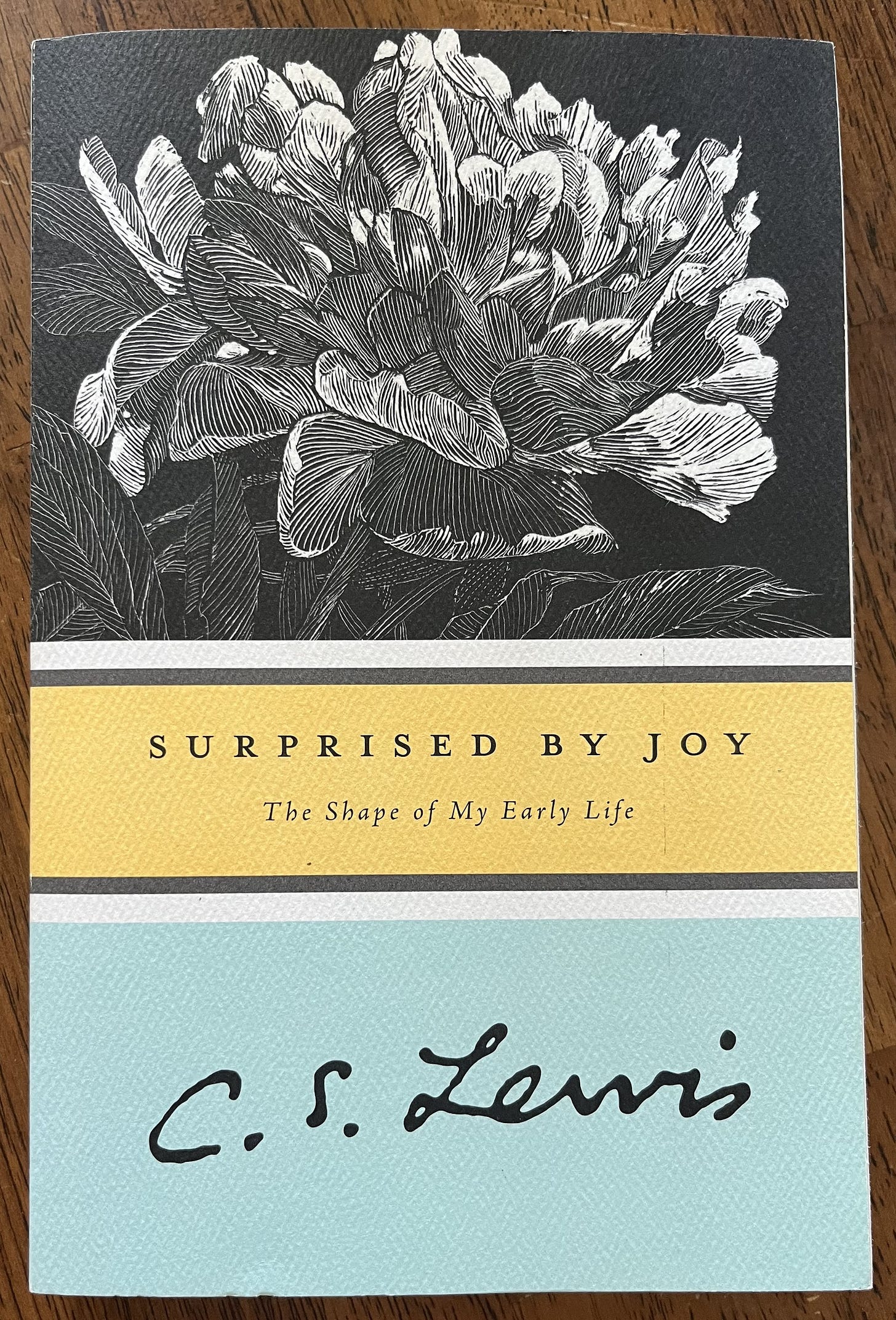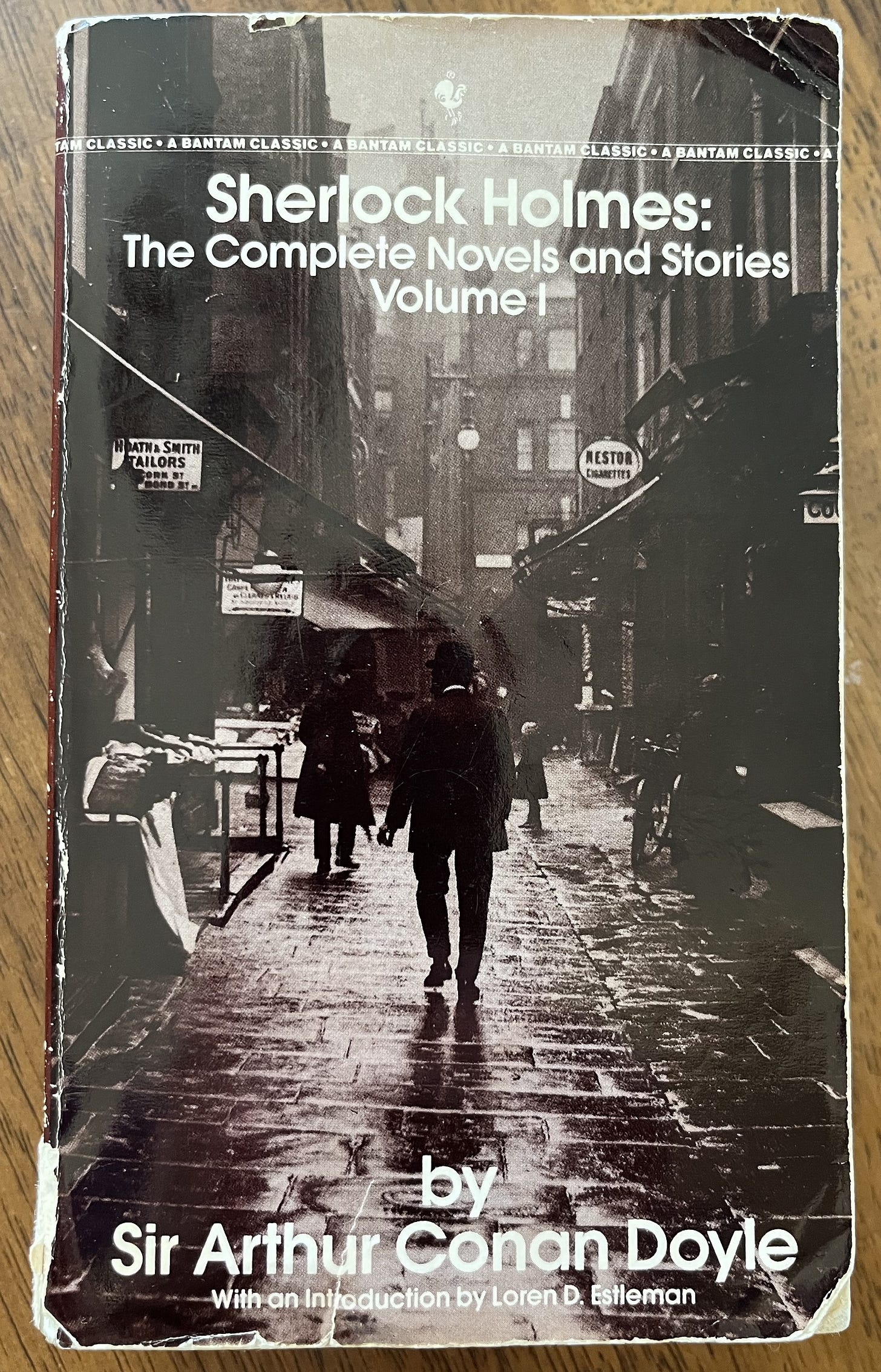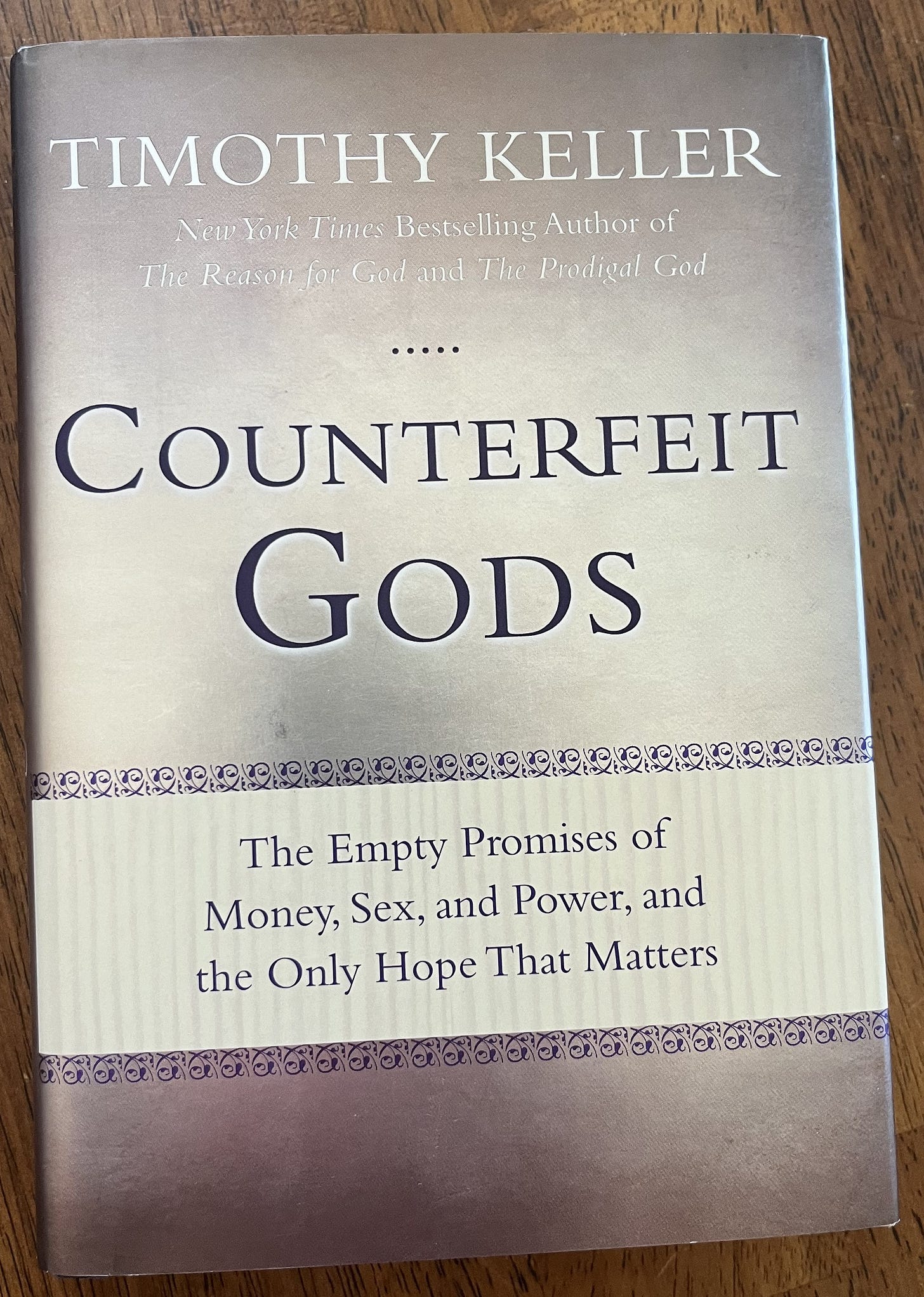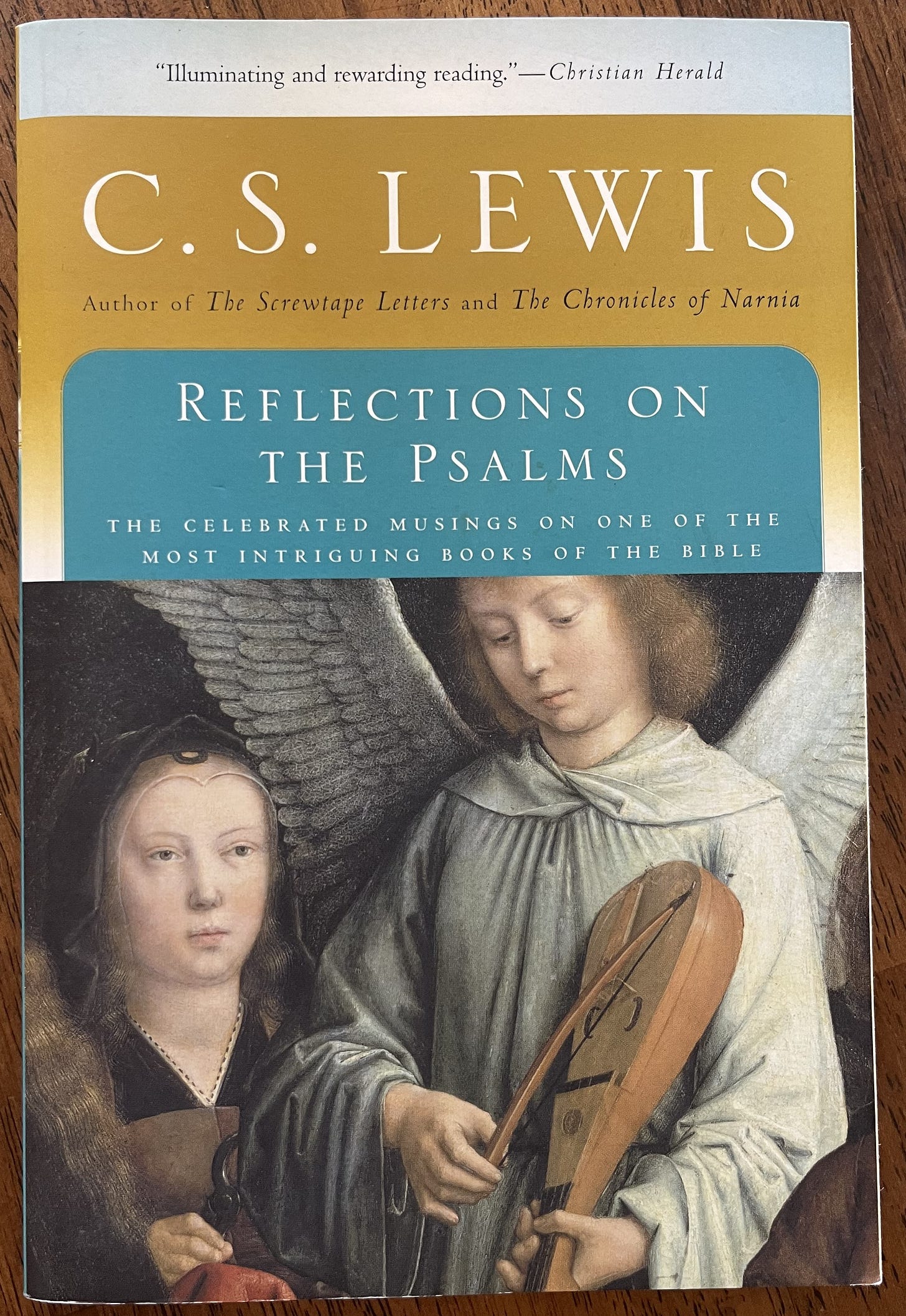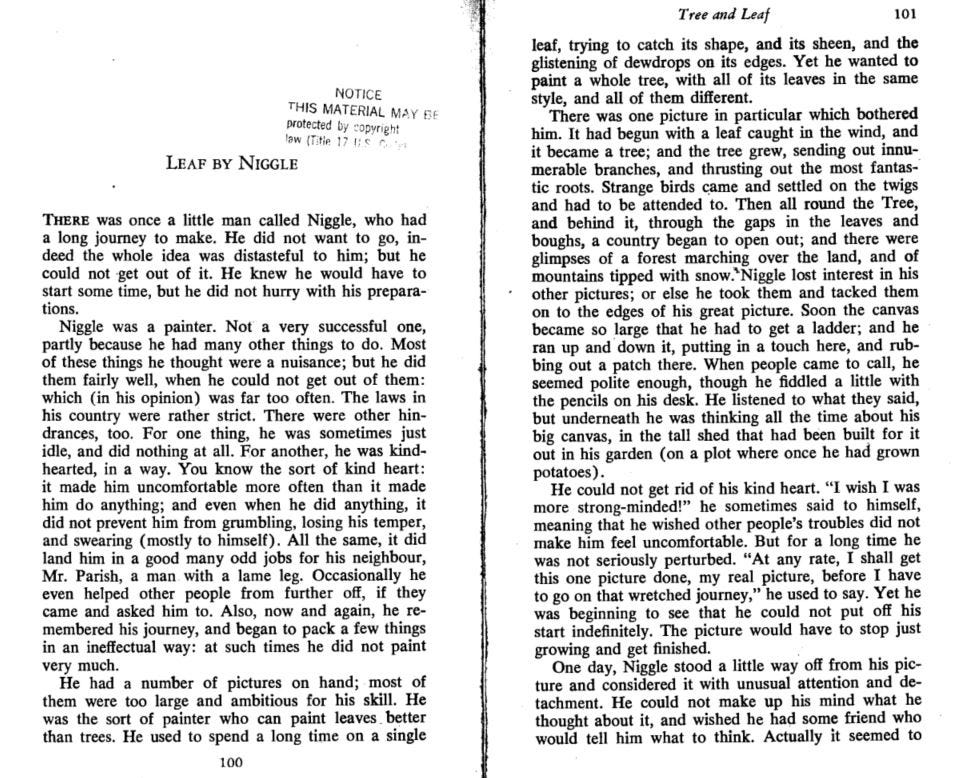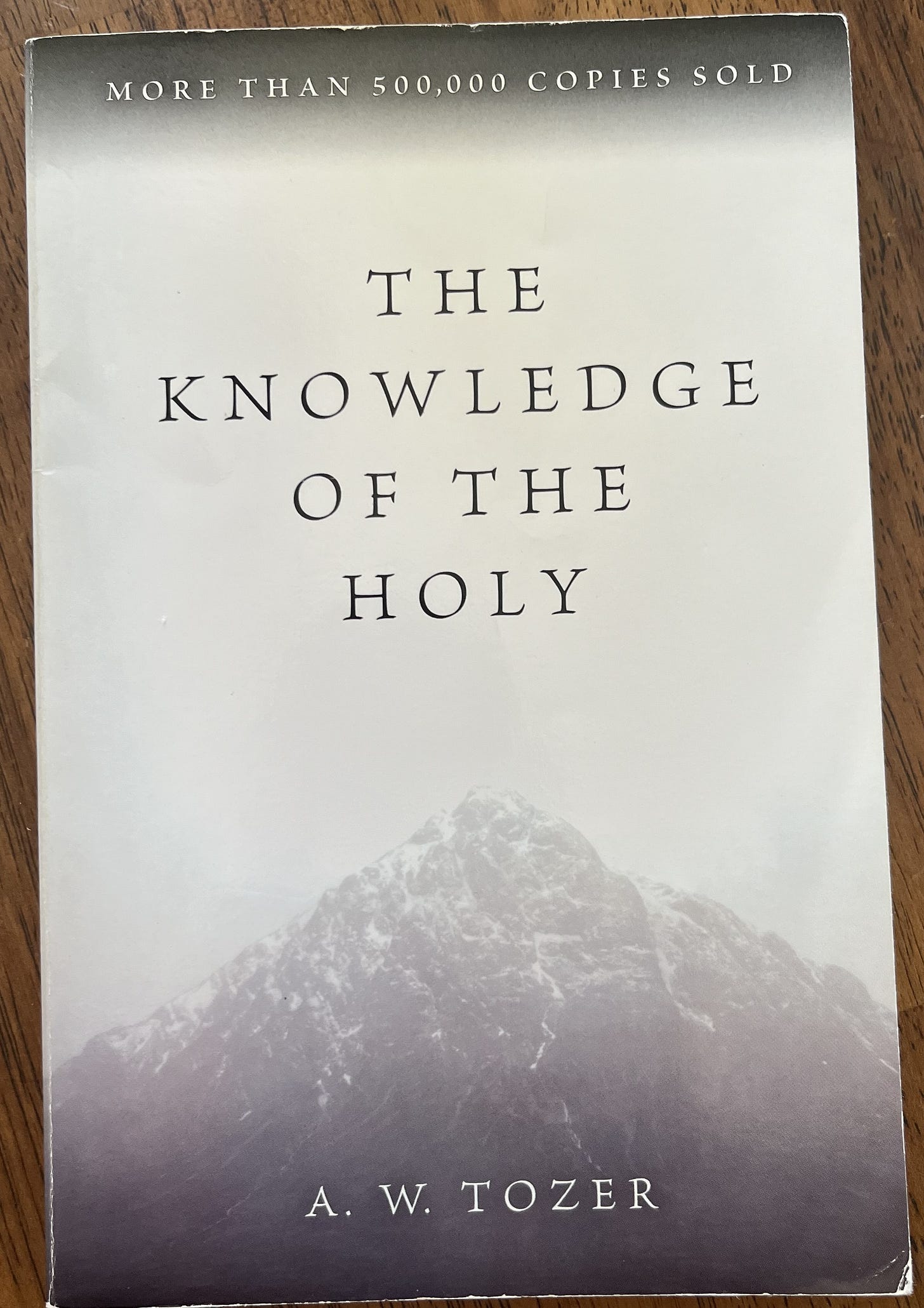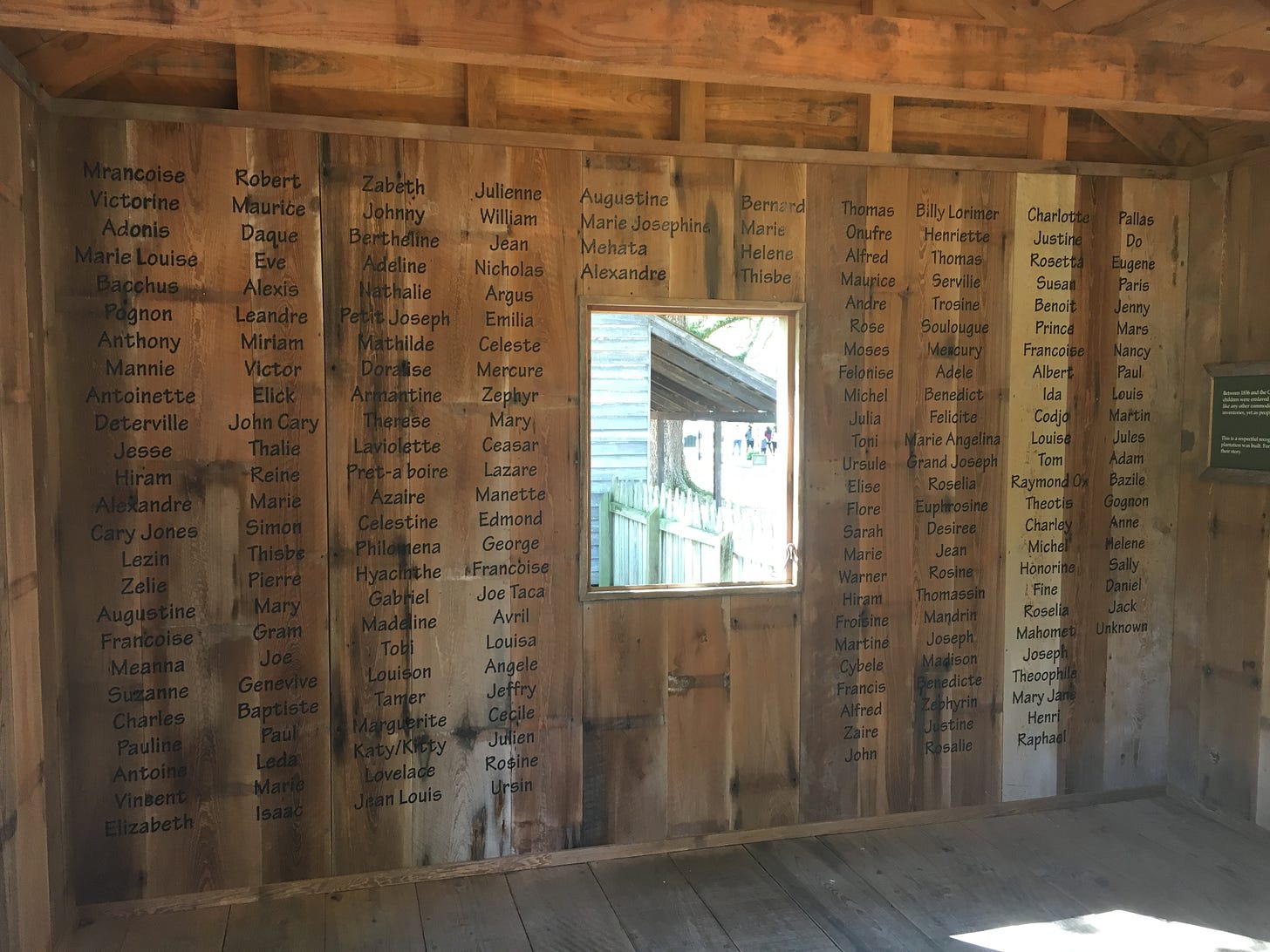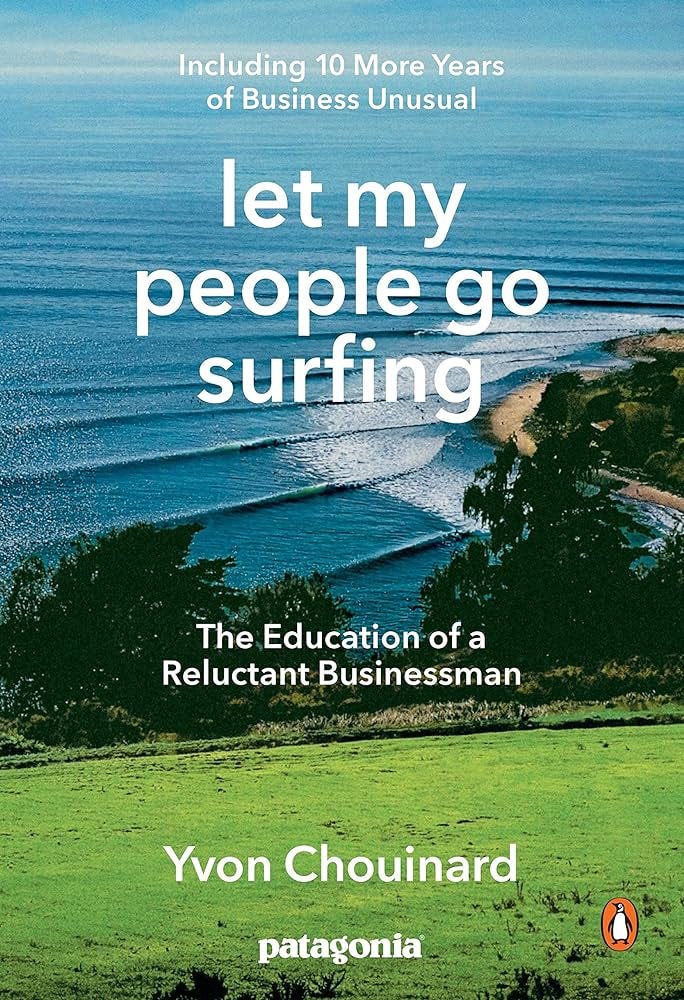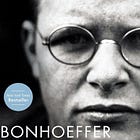Top 10 Books Read of 2014
"Liking an author may be as involuntary and improbable as falling in love." -C.S. Lewis, from "Surprised by Joy"
1. Steve Jobs by Walter Isaacson
2. Maus by Art Spiegelman
3. Surprised by Joy by C.S. Lewis
4. Sherlock Holmes: The Complete Novels and Stories, Volume 1 by Sir Arthur Conan Doyle
5. Counterfeit Gods by Tim Keller
6. Reflections on the Psalms by C.S. Lewis
7. Leaf by Niggle by J.R.R. Tolkien
8. The Knowledge of the Holy by A.W. Tozer
9. Twelve Years a Slave by Solomon Northup
10. Let My People Go Surfing by Yvon Chouinard
●●●
A friend told me that dating is like falling down the stairs. In 2014, I tripped down the first step and kept tumbling until I eventually reached the bottom of the stairwell. It was painful. Most of my journal entries were un-readable. Someone recommended that I should write down a prayer each week and I took the suggestion fairly seriously.
Most of the written prayers followed the same pattern:
Some overly formal intro
Hemming and hawing about how I didn’t want to write down the things I was really thinking out of embarrassment
Delaying the writing by listing off the same collection of names of people that I felt like I was failing for not having converted yet
Finally getting around to writing a page and a half about how much I wanted the most recent girl on my mind to fall in love with me
When I read those entries again, I couldn't get through most of them. I felt that awkward pit of embarrassment welling up in my stomach as the insecurity bled through the pages and back into my repressed memories of being single and lonely.
Fuck me, what a miserable time.
When I wrote things down in the form of a prayer, I had this formal tone where I addressed God as though I was a ‘Game of Thrones’ character—using words that I would never bust out in casual conversation like “steadfast,” “fellowship,” or “burdened.” People don’t really speak like that unless they’re cosplaying or trying to impress a Pastor (or a girl) while praying in public. I tell my sales students all the time: "talk like you normally talk."
Back when I was 24 I had yet to apply that lesson to myself.
And yet, I didn't feel ashamed as I read. Just pity. I knew that kid. I cared about that kid. And I remember how miserable he was. I had this refrain in a lot of the entries where I wrote, "I bet one day I'll look back on this and laugh or smile because of how little faith I had."
I wasn't laughing.
I wasn't smiling.
I couldn't stomach reading it any more than I could stomach writing it a decade ago. I felt nothing but empathy for him. What a difficult season of life to be in.
Alternatively, I also lamented feeling useless at work. I worried about not giving my company enough of myself. Well, that concern does makes me laugh now. That overambitious kid needs to chill out, the heartsick one needs a beer and a hug.
I wasn't miserable the entire time though. I had a lot of good first dates. The kind of extended lunches where time stands still but your bladder keeps moving. Where you hate to admit that the cups of water you drank out of nervousness are now assaulting the walls of your pelvis as you try to hang onto every word that the woman across from you delivers—not wanting to excuse yourself to pee for fear of stopping the momentum of conversation and possibly never getting it back. Those times were exciting. The text messages declining your invitation to a second date were not.
I did like one entry. A lot. It was the last one made in 2014 and it was the first one where I didn't directly address some rigid deity. I dropped most of the pompous Christian tone and jargon, though not all of it, and spoke to myself. The audience that I knew. Knew better than anyone else. And wanted the best for.
Thursday, December 18th, 2014
“So I'm writing this on December 20th, but the 18th is the important date. I've realized that the frequency of these entries is down a bit, and I think that is largely because I often write to try to organize my thoughts in an effort to obtain some clarity and peace with everything else going on in my mind. But I can say that my head has been remarkably clear as of late. On October 19th I met Paige Clouse for the first time on a blind date arranged by Kelley Greening and Katie Strock. The date went well, but I knew that I hadn't interacted with Paige enough to adequately assess the compatibility of a relationship. We continued to text, talk, and go on dates, and my infatuation with her increased exponentially as we spent more time interacting with one another. And, as mentioned before, my head became more and more clear. It became apparent to me that Paige and I were meant to be in a relationship. Now, that statement comes with some caveats.
I've made entries before that had a similar flavor to them about other women. I've long desired to know who that special person is, the way you hear the Best Man reciting the story about how "I remember when you told me that she was the one..." The reality is that a part of me hoped that with every girl I was interested in that I could convince myself that she was the one. That it was fate. That this story would finally have a happy ending if I could just pre-emptively write one. I had this vision of someone reading an entry years after being happily married and saying, "See! He knew all along!" The truth is that I don't. I don't know if I'll marry Paige. I don't look at her today with an absolute certainty that she'll be the same person I will look at veiled in white and entering into a covenant with. I think it's unrealistic to truly expect to know that. But what I do know with absolute clarity is that today, December 20th, 2014, Paige and I should be together. So, on Thursday, December 18th, I asked if she felt the same way. And she did. If true faith is being sure of what you hope for and certain of what you cannot see, then having faith that you'll be married has nothing to do with clarity. There are no guarantees that you’ll make a definitive declaration of love the first time you meet someone. Confusion, doubt, and frustration are likely far more realistic. But the beautiful thing about the Gospel's application to all situations is that emotions that could cause despair can also cause hope, joy, and direction. Sometimes we think lack of direction is a bad thing, but when it informs faith, those same circumstances become beautiful. Our doubts turn to hope, our confusion to peace, and our frustration to patient expectation. And that is where I am today. No, I will not say that Paige will be the woman I will marry. I will not write the ending of that story today. But what I will say is that I serve a God that cares deeply for His glory and my sanctification. He will have His way inevitably in all areas of my life and will orchestrate what once seemed like a symphony of chaos into a beautiful melody. And He's doing the same thing in Paige’s life. So today, those two pieces of music are being played together, but that may not always be the case. But perhaps more importantly, I would not be surprised in the least if it carried on in that way. That if when our songs finally end one day that we are holding hands, taking that bow together."
I did end up marrying her. We’re still falling down the stairs, but it’s nice doing it alongside someone. Even if we’re often pulling the other person down the stairwell with us.
●●●
1. Steve Jobs by Walter Isaacson
What a book.
I've never taken the blood oath to join the cult of Apple. I learned how to type on a see-through green Macintosh with a hockey puck for a mouse, bitching the whole time about how confusing everything was on the school's computers compared to the simple Windows XP interface I had at home. But when the iPod came out, I have perhaps never loved a physical object more. I still have my 2008 iPod Video that I bought to replace my 2006 iPod Color that crapped out on me while I was working on my high school term paper. As I type, that same iPod is currently playing "Red Sky" by Thrice off of their 2005 Vhiessu album.
I love it still.
There’s something about Jobs' relationship to physical devices that inspires me, even though I don't regard his creations with the reverence many do, at least not all of them. I read this book with a friend in an attempt to start a short-lived book club. I think I read it too soon. I was 24 years old, trying to make my mark on the corporate world while lacking any real vision. Meanwhile, Jobs was founding an empire on a parallel path. I would read the milestones and compare my progress against his:
"Well ok, he's 26 now in the book, so I guess I have another two years to become a multi-national CEO."
These aren't helpful thoughts. It took years for me not to feel like an utter failure for simply collecting a salary and paying a mortgage. I attribute a lot of that angst to reading this book when I did, but not to the book itself. I still love it.
Walter Isaacson has become my favorite biographer. He has a knack for crafting a narrative from disjointed episodes without losing the authenticity of non-fiction. Compare this style to someone like Erik Larson (who I love) or Ben Mezrich (who I think is ok). When you read from those two, you're not sure at any given point if what you're hearing is truth or embellishment since the writing feels like it was made-up, even when it wasn’t. Isaacson is formal and authoritative, yet uses plain language and reads as if you were talking to your favorite Uncle who just happens to have a super cool job and likes talking about it.
Also, it's good to see the human side of some of the world's idols like Jobs, even if it does make you insane. At least I didn't do what Elizabeth Holmes did after reading the book and actually try to become Jobs and end up in prison for fraud.1
"Remembering that I'll be dead soon is the most important tool I've ever encountered to help me make the big choices in life. Because almost everything— all external expectations, all pride, all fear of embarrassment or failure—these things just fall away in the face of death, leaving only what is truly important. Remembering that you are going to die is the best way I know to avoid the trap of thinking you have something to lose. You are already naked. There is no reason not to follow your heart."
-Steve Jobs at a Stanford Commencement Ceremony (and probably quoted in that book somewhere)
●●●
2. Maus by Art Spiegelman
Some books are profound. Some are haunting. Some are beautiful.
Maus is all three.
If you've seen this title, it was likely at a banned book display at some local bookstore or library. There are some places (like all of Russia) that keep Maus off the shelves, which is a tragedy, because it tells the story of another tragedy in the most captivating form I have ever seen. I've also seen "Schindler's List." That movie is great. Maus is better.
Maus is the tale of a son collecting his dad’s story as a holocaust survivor— his real story. Spiegelman used the form he knew, comics, and captured the atrocities of inhumane treatment by making all the characters in-human. Is that a word?
Every Jew was a mouse. Every German a cat. Americans, French, Italians, and even Gypsies all got their own animal treatment. Because this was how the world behaved during this period— like a bunch of animals.
There are a lot of books I think people would like reading. There are only a few that I think everyone SHOULD read. Everyone should read Maus.
●●●
3. Surprised by Joy by C.S. Lewis
I’m not sure exactly when I made the declaration that C.S. Lewis is my favorite author, but it may have been after reading this book. If you really study Lewis' catalog, it's impossible not to be impressed by its breadth. Children's books, adult science fiction, theology, academic criticism, poetry, and —with 'Surprised by Joy' —memoir. Most people can't write one genre well, let alone every genre. I've read some of Lewis' scholarly work and am humbled by what a total moron I am since typically pages go by without me understanding a single thing he said. And then I read 'Mere Christianity' and feel like he just penetrated straight to my soul. ‘Surprised by Joy’ makes you feel like Lewis was your closest companion. You realize why he was beloved by so many of his students. He writes as if you're one of those pupils sitting in his study, swapping stories about shared passions.
I've become so captivated by his life that I make a point to read a different Lewis biography every year. This one may still be the best, despite some obvious omissions (like his weird relationship with the mother of his dead friend that he lived with the majority of his adult life), and the fact that the memoir predates his marriage to the conveniently named Joy Davidman who inspired him to write some of his finest work.
"...it is that of an unsatisfied desire which is itself more desirable than any other satisfaction. I call it Joy, which is here a technical term and must be sharply distinguished both from Happiness and from Pleasure. Joy (in my sense) has indeed one characteristic, and one only, in common with them; the fact that anyone who has experienced it will want it again."
"Nothing, I suspect, is more astonishing in any man's life than the discovery that there do exist people very, very like himself."
"I know very well when, but hardly how, the final step was taken. I was driven to Whipsnade one sunny morning. When we set out I did not believe that Jesus Christ is the Son of God, and when we reached the zoo I did. Yet I had not exactly spent the journey in thought. Nor in great emotion. 'Emotional' is perhaps the last word we can apply to some of the most important events. It was more like when a man, after a long sleep, still lying motionless in bed, becomes aware that he is now awake."
●●●
4. Sherlock Holmes: The Complete Novels and Stories, Volume 1 by Sir Arthur Conan Doyle
It would be nice to pretend like I picked up this book because I'm incredibly cultured, but it was just because I really liked the Sherlock TV show that BBC made. I was browsing the aisles of Half Price Books while waiting for an insultingly low offer on the used paperbacks I wanted to sell, when this tattered doorstop caught my eye. It took me a bit to get through it all, but the collection of short stories allowed me to put the book down for a bit, move onto other things, and then revisit Mr. Holmes and Mr. Watson with new interest— especially if the incident tied into an episode of Sherlock I just watched. That show is sweet.
However, my favorite part of the entire book may be the description of Arthur Conan Doyle on the opening pages. I haven't found a good Arthur Conan Doyle biography, but there must be one somewhere:
"Sir Arthur Conan Doyle was born in Edinburgh, Scotland, in 1859. He studied medicine at Edinburgh University and settled in London, but his less than thriving practice left him with a great deal of spare time. It was then that he began to write the famous Sherlock Holmes stories. His first success was A STUDY IN SCARLET, which appeared in Breton’s Christmas Annual for 1887. Following the publication of THE SIGN OF FOUR in 1890, he left medicine to devote himself to writing. While he wrote many other stories of adventure and historical romance, it was his detective fiction featuring the great Sherlock Holmes that brought him fame. In fact, when Doyle tired of the character and killed off Holmes in "His Last Bow," published in 1893, he was forced by public demand to restore him ingeniously to life. Arthur Conan Doyle lived a varied and adventurous life. He was a historian, whaler, athlete, war correspondent, and spiritualist. He personally championed two cases of injustice, using his own detective work to prove the men innocent of crimes for which they were convicted. Conan Doyle was knighted in 1902 for his work in a South African field hospital during the Beor War. He died in 1930."
Did you catch that? Fucking Arthur Conan Doyle was knighted for SOMETHING THAT HAD NOTHING TO SHERLOCK HOLMES.
What a badass.
●●●
5. Counterfeit Gods by Tim Keller
Most of my mental energy in 2014 was spent despairing over girls and work. I had just accepted a job that I had no idea how to be productive in, and, as a card-carrying meritocrat, this translated into constant feelings of utter failure. So, I thought a lot about 'idols,' and this was a pretty good read along those lines. If I read it in another season of life it likely wouldn’t have cracked the top 10, let alone the top 5, but Keller has a knack for taking a weighty topic and boiling it down to its core components. I needed that back in 2014.
"We learn that through all of life there runs a ground note of cosmic disappointment. You are never going to lead a wise life until you understand that."
●●●
6. Reflections on the Psalms by C.S. Lewis
Here's my hot take: I'm not a big fan of the Psalms.
I never have been. The style of communication doesn't naturally resonate with me and I have a hard time placing myself in the middle of someone's sorrows when I don't know the context of the situation. I could do that research (and sometimes I have), but the visceral 'go read the Psalms' response that I have heard many times during seasons of heartbreak or depression has never been satisfying to me.
That's probably why a book written by the master logician Lewis resonated. He was willing to walk through all the 'here's why it's not totally inappropriate for David to demand murder of people he's unhappy with' threads while still capturing the essence of worship that the book of the Bible was intended. It was a good read.
I still don't really like the Psalms though.
“I think we delight to praise what we enjoy because the praise not merely expresses but completes the enjoyment; it is appointed consummation."
●●●
7. Leaf by Niggle by J.R.R. Tolkien
Who knew Tolkien wrote anything shorter than 700 pages?
I first heard about this short story from Keller's ‘Every Good Endeavor’.2 Keller likes to find a parable to illustrate a point. In describing how our work often feels fruitless and dissatisfying— yet still holds meaning— he drew upon this tale of an unremarkable artist named Niggle who spent more time dreaming of painting the beautiful tree in his mind’s eye than he did actually painting it. Due to constant interruptions, Niggle only got done with a leaf. And Niggle dies.
Bummer, right?
In his afterlife, Niggle discovers that not only has his tree been made real, but it had grown into an entire forest, more perfect and beautiful than he could have imagined.
I found a .pdf of the entire thing illegally scanned and stashed in the corners of the internet. I went back and re-read it for the first time since 2014. I still love the story. Often we feel our grand dreams will never be realized, and often we're right about that, but maybe there's more to the story than we can immediately see.
Even the guy that wrote ‘The Lord of The Rings’ felt that way sometimes.
" ‘But it did not look like this then, not real.' said Parish
‘No, it was only a glimpse then,' said the man;
‘but you might have caught the glimpse, if you had ever thought it worthwhile to try.' "
●●●
8. The Knowledge of the Holy by A.W. Tozer
If you ever get stuck and need a provocative quote for a sermon, you can do what most Pastors do and use the following:
"What comes into our minds when we think about God is the most important thing about us."
Whatever your sermon topic, this bad boy will do the trick.
The rest of the book ain't bad.
●●●
9. Twelve Years a Slave by Solomon Northup
In 2013, this memoir of a free black man that was abducted and sold into slavery for (you guessed it) 12 years was made into a movie and won the Academy Award for Best Picture. And it earned it. The movie is chilling and brutal, but reading the account first-hand from the man who lived it is heartbreaking. This kind of shit actually happened.
What bothered me most was how the culture of racism was so imbedded within our society that it was impossible for many to see on the surface how cruel and horrible it was. We'd like to think we would have been better than the generations before us. That there is no way we would tolerate such a systemic and unspeakable oppression of another people. History tells us that we're capable of far more horrors of ignorance than we could ever imagine.
"It is not the fault of the slaveholder that he is cruel, so much as it is the fault of the system under which he lives. He cannot withstand the influence of habit and associations that surround him. Taught from earliest childhood, by all that he sees and hears, that the rod is for the slave's back, he will not opt to change his opinions in maturer years."
It stuck with me, and I never quite looked at slavery, or human nature, quite the same since. It was a stark reminder.
And much more effective than the time I went to a New Orleans plantation and they wrote the names of every slave that worked there on the wall of a former slave quarters— but chose to do it in comic sans font.
●●●
10. Let My People Go Surfing by Yvon Chouinard
My buddy Tim let me borrow this book written by the founder of Patagonia clothing. We chatted about it after, along with my mixed feelings about Chouinard's views.
Tim’s advice: “take the good, leave the bad.”
Pretty good advice.
Chouinard has some admirable views on sustainability, work-life balance, and corporate ethics. I was challenged by a lot of the sacrifices he made both personally and corporately to uphold those values.
I also made the personal decision to never purchase any Patagonia products after learning that a portion of their profits every year support abortion and Planned Parenthood.3 Hard for me to reconcile that in my consumer purchases.
That being said, I was given a Patagonia pullover and backpack when I was finishing up my MBA. I didn't pay anything for them, I just had to post a picture of me with a paper cut out of Billy Bluejay while on vacation. I absolutely love both of them, they're two of the most well-made items I own.
●●●
https://news.yahoo.com/elizabeth-holmes-obsessed-steve-jobs-103000937.html
https://www.latimes.com/business/story/2021-05-09/patagonia-shows-corporate-activism-is-simpler-than-it-looks



